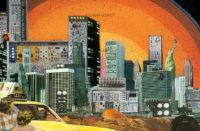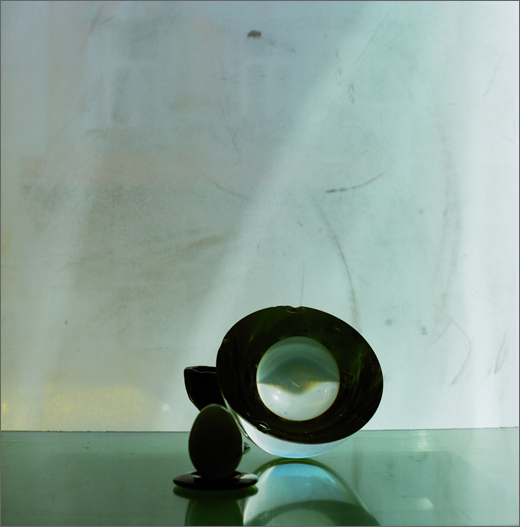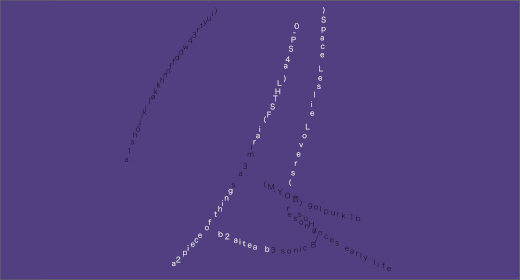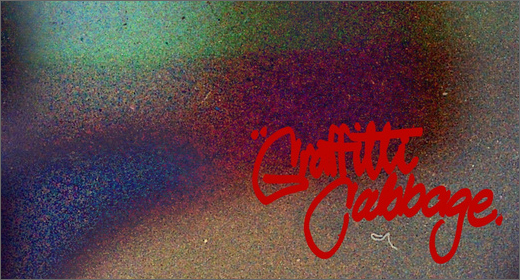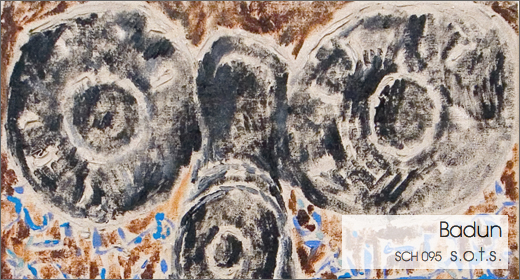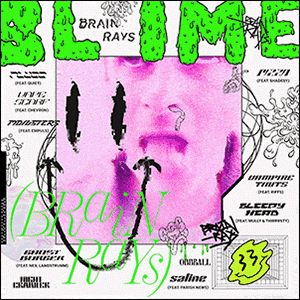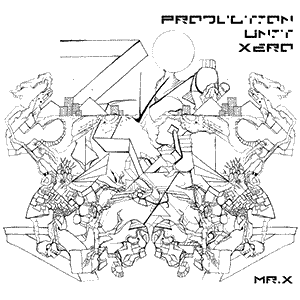s.o.t.s. Respace attempts to resign, revisit, re-appropriate, or leave unresolved the stuff we set aside for the taking, forming and forcing new connections and associations along the way, scavenging for and scattering the detritus of life, just an ordinary day.
Ornamental, divorced almost entirely from purpose but nevertheless alive with intent, the modern-day remix is as much a mystery as it is an indispensable, or inevitable, part of popular music. A simple explanation is that the remix is simply a byproduct of the inherent technical and communal qualities unique to electronic music scenes and the increasingly digital nature of recorded music in general. From the workhorse club tools of the average DJ to the noncommittal drafts of a soundclash selecta’s freshly pressed dubplates, from high-profile pop stars leaching credibility from thriving local scenes to full-length remix albums colorfully retelling the same story through a dozen unreliable narrators, remix culture as we know it has no bounds. Even so, the imperceptible transformations and deviations that allow electronic music continue to develop and evolve can often be crudely represented as visible milestones by way of the standalone remix and it is therefore as crucial to our own understanding this music’s history even as the elusive form actively seeks to escape it by undoing, redoing, and (controversially) making completely new.
s.o.t.s. Respace, a collection of remixes commissioned by Århus, Denmark-based Badun, and triggered by their 2012 album s.o.t.s. album for Miami label Schematic, is a testament to the remix’s potential for the purely artistic. Six tracks of wildly varying provenance converge here as a strangely cohesive whole, providing the listener an experience that touches on reference, mimesis, and nostalgia.
Once emblematic of the stateside’s elevated and informed tastes in electronic experimentalism at the beginning of the new millennium, Schematic Music Co., run by Phoenicia’s Josh Kay and Romulo del Castillo, excelled by creating a successful formula that married tasteful, modern sleeve design with artists who celebrated rhythm and melody through obsessive sound design. And although the label quickly amassed a catalog of early scene classics (see Delarosa + Asora, Push Button Objects, Richie Devine, o9), it seemed to just as quickly devolve into a vehicle for lazy, psychedelic art-rock and the splatter jock sound that would eventually find purchase in the international breakcore scene. Despite all this, I was eager to investigate the label’s recent activities as, more or less, a net-label using the popular venue Bandcamp as their home base.
According to Badun’s Oliver Duckert, this collection represents the talents of “good friends who inspired” the group but, as far as I can tell, the reverse seems to be just as true, as these tracks adhere to a philosophy of sound that unites them together regardless of their respective approach. That these tracks have surfaced nearly three years after the original material was released only serves to reinforce that a remix does not have to be of the moment to justify its existence.
Icarus goes minimal, modern classical on “Fradig James,” framing acoustic piano swells and adlibs with busy but uncomplicated rhythmic patterns, while the Skam affiliated Quinoline Yellow offers a version of “New Holme Ejj90” that recalls Pine Effect-era Paradinas, throwing all manner of delirious frequencies into a mix that threatens to bleed into the red at any point.
“Glry Studio,” here reconstructed by Londoner dgoHn, is proper rinse-out of dexterous, blunt-force drill ‘n’ bass. The thicket of vine-like drum lines aerated by hi-hat barks, mallet-struck cymbals, and clipped chord clusters echoes the spirit of the well-designed studio meanderings of Badun’s original but the blind inertia of this remix could bore a clean column straight through the densest plutonic rock. Despite the remix’s superficial divergence from the track that gave it its inspiration, it’s clear that the two artists meeting here in this shared space are of kith and kin, demonstrating their dedication to expressiveness via creative play.
On “Six Months Later in a Bash,” Burnt Friedman rather ingeniously honors Badun’s fragmented, drum ‘n’ efx original by drawing from his trademarked electro-acoustic sound palette, playing to his strengths as an arranger of subtle compositional shifts but never letting his virtuosity sour the overall flavor of the tune. Percussive curios accumulate in clumps and disperse, odd tonalities sideswiping one another in a richly spatial dub den, an alternate future in which Vladislav Delay followed his early muse to become a jazz drummer. Using similar methods, Badun themselves mine their own track “Sound off the smoke” for the types of distended, peculiar pitch-bends that provide a perfect coda to Friedman’s dismantled structures and sequences.
Easily the most drastic departure from the s.o.t.s. sound is Frog Pocket’s cathartic reimagining of “I can not remember my funk school.” A fitting title, as it seems the Scottish producer John Wilson ditched funk class altogether, instead losing himself in self-guided studies of the solemn, oversized riffs of Mogwai and the scorching speed of early Squarepusher tracks. Staggering in its bluster and beauty, so singular its stature, it almost negates whatever residual memories the previous songs have left on my mind. So perhaps a perfect ending to these attempts to resign, revisit, re-appropriate, or leave unresolved the stuff we set aside for the taking, forming and forcing new connections and associations along the way, scavenging for and scattering the detritus of life, just an ordinary day.
s.o.t.s. Respace is available on Schematic Music Company.






